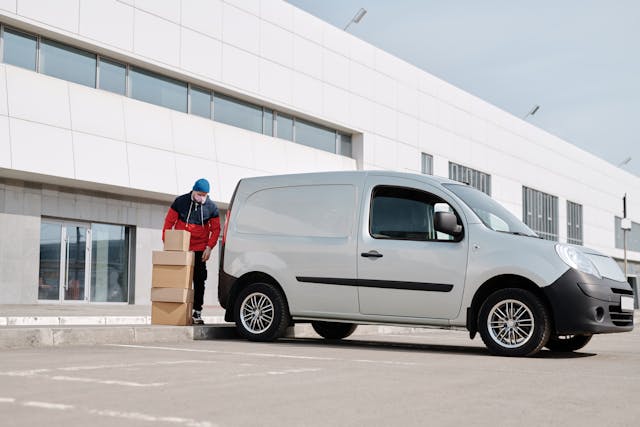How Technology Is Revolutionizing Delivery Solutions
Delivery and logistics in recent years have been completely revamped, thanks to technological advancements. From order processing to where packages are delivered, innovation in solutions, methods, and systems is changing the face of the logistics sector.
Let's look at technology in delivery solutions and how it impacts businesses and consumers.
Automation and AI
Integrating automation and artificial intelligence is one of the foremost improvements in delivery solutions. Automated processes streamline order processing, inventory management, and route optimization.
Artificial intelligence uses algorithms to evaluate massive datasets to predict demand, speed up deliveries, lower costs, and improve last-mile delivery processes.
For example, Amazon employs robots that dramatically and accurately pick and pack goods in their warehouses. These robotic systems work with human employees to improve efficiency and reduce mistakes.
Other AI-enabled route-optimization systems work by helping route planners and drivers reduce traffic contributions and fuel consumption, respectively, enabling quick and more efficient delivery.
Smart Tracking and Real-Time Updates
Gone are the days when customers could sit and wait, often wringing their hands, having no clue when their package would drop in. More modern delivery approaches leverage GPS and IoT (Internet of Things) technology to provide customers with real-time tracking changes. This means that customers can see and track their orders from dispatch to delivery, adding credibility and transparency for the logistics companies.
Logistics companies also gain, with IoT-based sensors keeping track of the quality of packages to ensure that perishable goods or those that require delicate handling will be adequately treated.
Temperature-sensitive products, such as vaccines or fresh produce, can be monitored through the delivery process to ensure compliance with safe parameters. This helps to reduce losses and enhances operational productivity and customer satisfaction.
Economical Delivery Practices
Over the years, a set of alternatives for greener and sustainable delivery solutions has been growing through viable means of technology. Electric vehicles for logistic fleets are entering contemporary requirements to minimize huge carbon emissions during delivery processes.
Organizations like DHL and Amazon have successfully pledged their future investments to launch larger fleets of EVs, pointing towards greater future sustainability in this sector.
Furthermore, predictive analytics helps to determine the most efficient route for deliveries so that much less fuel is consumed during transportation compared to other models, thus increasingly reducing the impact on the environment.
Micro-fulfillment centers and bike couriers are increasingly gaining momentum in cities to reduce the distance parcels are expected to cover in reducing the carbon footprint of last-mile deliveries.
Meanwhile, companies are aspiring for a carbon-neutral delivery model, developing operational mechanisms that integrate renewable energy resources such as solar and wind. In particular, Tesla's solar-powered charging stations support electric vehicle fleets, illustrating how renewable energy might supplement logistics operations.
Personalized Delivery Experiences
Customer personalization of their space activities now finds traction through technological means. Through apps and platforms offering flexibility, customers can determine when and where their parcels should be delivered.
Advanced analytics allow businesses to anticipate customers' preferences; such tailored and targeted delivery options live up to the individual's expectations and values.
Some e-commerce platforms allow customers to choose green delivery methods or consolidate orders into one shipment to express priorities. Some other businesses use subscription delivery models, providing regularly scheduled deliveries for a discounted fee, thus cultivating convenience and brand loyalty.
Endnote
Technology rapidly transforms the face of delivery, making it faster, more efficient, and sustainable. For companies, it is now a case of necessity to embrace these innovations to stay relevant within their markets that are becoming increasingly competitive.
As for consumers, it provides convenience, transparency, and green alternatives. The future of delivery solutions promises to become even more exciting and impactful in the new digital age.

